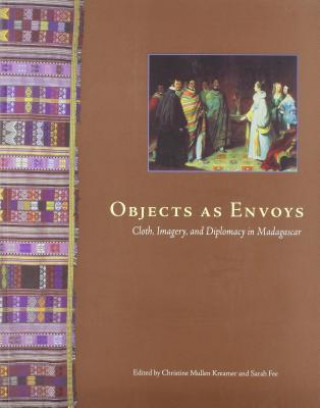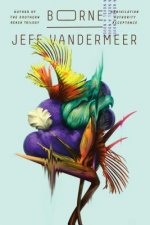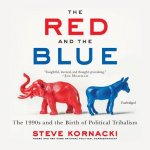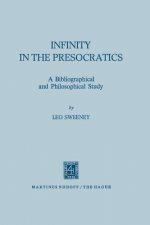
Doručení
Nákupní rádce





Nehodí se? Vůbec nevadí! U nás můžete do 30 dní vrátit
 Dárkový poukaz
V libovolné hodnotě
Dárkový poukaz
V libovolné hodnotě
S dárkovým poukazem nešlápnete vedle. Obdarovaný si za dárkový poukaz může vybrat cokoliv z naší nabídky.
Objects as Envoys
 Angličtina
Angličtina
 116 b
116 b
30 dní na vrácení zboží
Mohlo by vás také zajímat


In 1886, Queen Ranavalona III of the African island nation of Madagascar offered U.S. President Grover Cleveland two striking handwoven silk textiles. The American government later reciprocated with an autographed photographic portrait of the president. The essays in Objects as Envoys contextualize and explain the broader significance of this diplomatic exchange, deftly interweaving discussions of cloth production, international diplomacy, and popular representations of Madagascar and the Malagasy people in Europe and the United States. Together they tell a fascinating story of the people and history of this island country. Essays provide a comprehensive survey of Madagascar's textiles, past and present. They examine the importance of cloth to the Malagasy, both as creative works of art and as objects imbued with great social and cultural significance. They also consider the life histories of textiles such as the silks offered by Queen Ranavalona III, which moved from the category of politically charged gift to museum ethnological object. The little-known history of American-Malagasy ties is explored through the compelling biography of John Lewis Waller, the American consul to Madagascar from 1891 to 1894. An African American born into slavery, he both supported Madagascar's independence and dreamed of establishing an all-black colony there. The exchanges - and the misunderstandings - that have characterized the meetings between Madagascar and Western nations and peoples are further examined through a study of the ways in which 19th-century photographs and other visual images were used by Westerners to create stereotypes of the Malagasy and by the Malagasy themselves to create and project identities of their own choosing.
Informace o knize
 Angličtina
Angličtina
Kategorie




 Jak nakupovat
Jak nakupovat

































